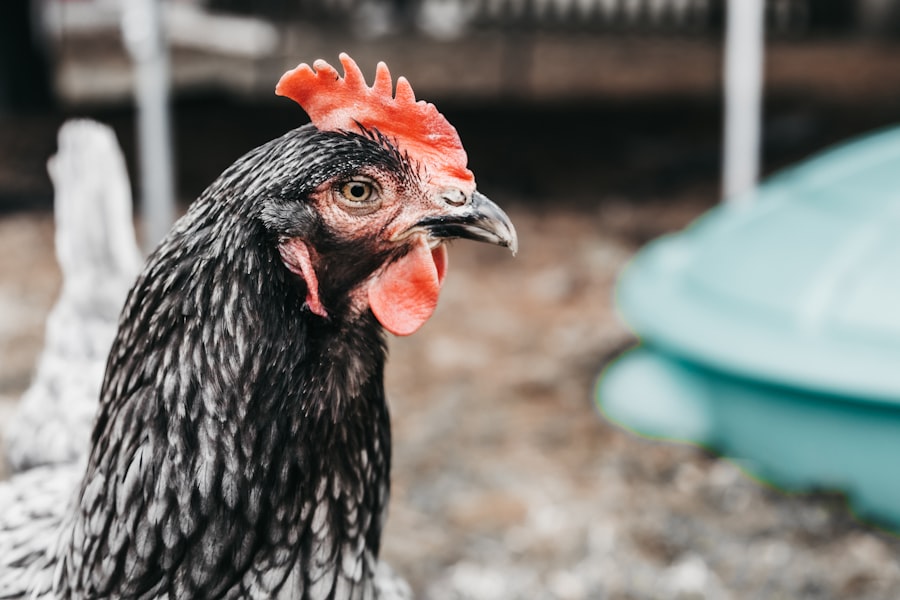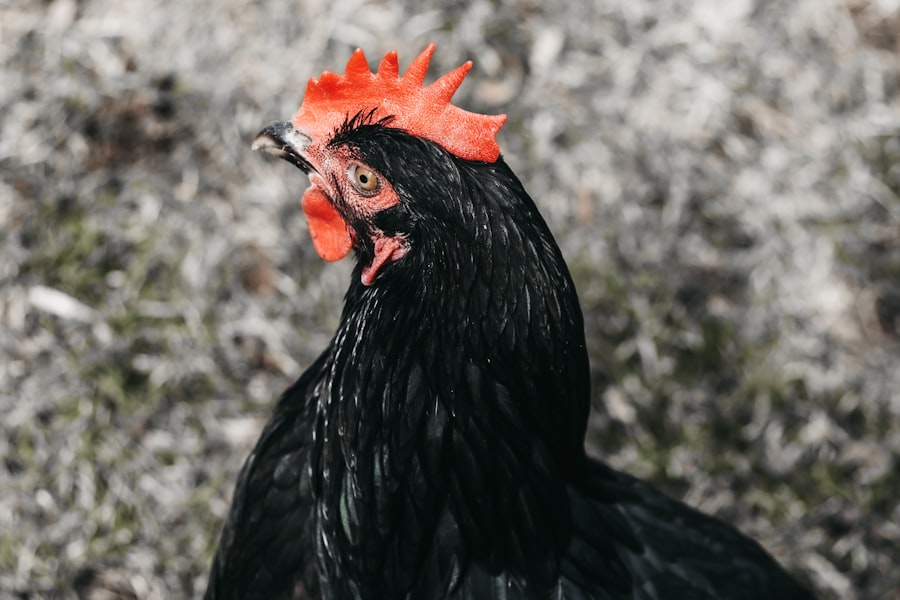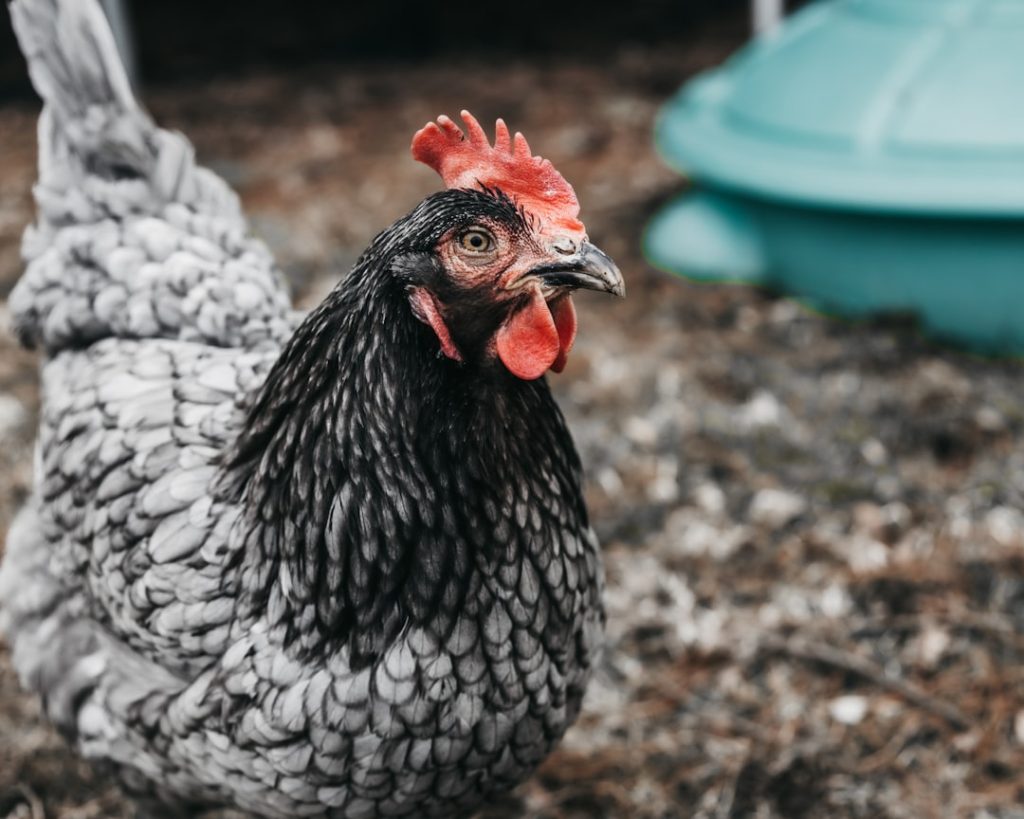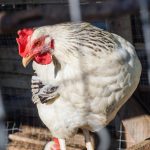Chicken lifespan and aging are important considerations for poultry keepers. On average, chickens can live between 5 to 10 years, with some breeds potentially reaching 15 years or more under optimal conditions. Factors influencing chicken longevity include genetics, diet, environment, and overall health management.
As chickens age, they may experience various physical and behavioral changes. Common signs of aging in chickens include decreased egg production, changes in feather quality, reduced mobility, and increased susceptibility to illness. Older hens may lay fewer eggs with thinner shells, while roosters might exhibit decreased fertility.
Proper care for aging chickens involves adjusting their diet to meet changing nutritional needs, providing comfortable living spaces with easy access to food and water, and regular health check-ups. Elderly chickens may require softer foods, additional supplements, and protection from extreme weather conditions. Monitoring the quality of life for aging chickens is crucial.
When a chicken’s health significantly declines, poultry keepers must consider humane end-of-life options. This may include euthanasia performed by a veterinarian or other approved methods. Understanding and addressing the needs of aging chickens is an essential aspect of responsible poultry keeping, ensuring that these birds receive appropriate care throughout their entire lifespan.
Table of Contents
Key Takeaways
- Keeping chickens can be a rewarding experience for both hobbyists and farmers.
- Chickens have a lifespan of around 8-10 years, but this can vary based on breed and care.
- Factors affecting longevity in chickens include genetics, diet, living conditions, and healthcare.
- Signs of aging in chickens may include decreased egg production, slower movement, and changes in feather quality.
- Caring for elderly chickens involves providing a comfortable living environment, adjusting their diet, and monitoring their health closely.
- End of life considerations for chickens may include euthanasia in cases of severe illness or suffering.
- Keeping chickens can be a fulfilling experience, and providing proper care for elderly chickens is important for their well-being.
Lifespan of Chickens
Factors Affecting Lifespan
For example, free-range chickens that have access to a natural diet and plenty of space to roam tend to live longer than chickens kept in cramped or stressful environments.
Breed-Specific Lifespan
Additionally, certain breeds of chickens are known for their longevity, while others may have shorter lifespans. It is important for chicken owners to be aware of the typical lifespan of their specific breed and to provide appropriate care to help their chickens live a long and healthy life.
Common Health Issues
Chickens can also be affected by common health issues such as respiratory infections, parasites, and reproductive problems, which can impact their overall lifespan. Regular veterinary check-ups and proper nutrition can help prevent these issues and contribute to a longer life for chickens. By understanding the typical lifespan of chickens and the factors that can influence it, chicken owners can make informed decisions about how to care for their birds as they age.
Factors Affecting Longevity

Several factors can affect the longevity of chickens, including genetics, diet, living conditions, and healthcare. Genetics play a significant role in determining the lifespan of chickens, as certain breeds are naturally predisposed to live longer than others. For example, heritage breeds such as Rhode Island Reds and Plymouth Rocks are known for their hardiness and longevity, while some hybrid breeds may have shorter lifespans.
Additionally, the diet of chickens can impact their overall health and lifespan. A balanced diet that includes a mix of grains, fruits, vegetables, and protein sources is essential for supporting the health and longevity of chickens. The living conditions of chickens also play a crucial role in their longevity.
Chickens that are kept in clean, spacious coops with access to fresh air and natural sunlight are more likely to live longer than those kept in crowded or unsanitary conditions. Proper healthcare is another important factor in ensuring the longevity of chickens. Regular veterinary check-ups, vaccinations, and parasite control measures can help prevent common health issues that can shorten the lifespan of chickens.
By addressing these factors and providing appropriate care, chicken owners can help their birds live longer, healthier lives.
Signs of Aging in Chickens
As chickens age, they may exhibit various signs that indicate they are entering their senior years. Some common signs of aging in chickens include decreased egg production, changes in behavior, reduced mobility, and changes in appearance. Chickens that were once prolific egg layers may lay fewer eggs as they age, and the quality of their eggs may also decline.
Additionally, elderly chickens may become less active and spend more time resting or sleeping. They may also exhibit changes in behavior such as becoming more withdrawn or less social with other chickens. Physical changes in elderly chickens can include a loss of muscle mass, changes in feather quality, and a decrease in overall vitality.
It is important for chicken owners to be observant and attentive to these signs of aging so they can provide appropriate care and support for their elderly birds. By recognizing these signs early on, chicken owners can take proactive measures to ensure their aging chickens remain comfortable and well-cared for.
Caring for Elderly Chickens
Caring for elderly chickens requires special attention and consideration to ensure they remain healthy and comfortable as they age. Providing a clean and comfortable living environment is essential for elderly chickens, as they may be more susceptible to stress and illness. This includes ensuring that their coop is well-ventilated, free from drafts, and protected from extreme temperatures.
Additionally, elderly chickens may benefit from additional bedding or nesting material to provide extra warmth and comfort. Elderly chickens may also require adjustments to their diet to accommodate their changing nutritional needs. This can include providing softer foods or supplements to support their overall health and wellbeing.
It is important to monitor the weight and condition of elderly chickens regularly to ensure they are maintaining a healthy body condition. Additionally, providing opportunities for gentle exercise and mental stimulation can help keep elderly chickens active and engaged. Regular veterinary check-ups are also important for elderly chickens to monitor their health and address any age-related issues that may arise.
By providing attentive care and making necessary adjustments to their environment and diet, chicken owners can help ensure that their elderly birds enjoy a comfortable and fulfilling retirement.
End of Life Considerations

As chickens age, they may experience a range of health issues that require special attention and care. Common age-related health problems include arthritis, respiratory problems, and reproductive disorders. It is essential for chicken owners to work closely with a veterinarian to manage these issues and provide appropriate treatment or palliative care as needed.
Making End-of-Life Decisions
When an elderly chicken’s quality of life begins to decline significantly due to age-related health issues, it may be necessary to make end-of-life decisions, including euthanasia. This can be a difficult but compassionate choice to prevent unnecessary suffering for the bird. Chicken owners should consider the welfare of their elderly birds and seek guidance from a veterinarian when making these decisions.
Providing a Comfortable Environment
Providing a comfortable and peaceful environment for elderly chickens during their final days is crucial. This can include creating a quiet space where the bird can rest undisturbed and providing supportive care such as gentle handling, warmth, and comfort measures. By considering these end-of-life considerations with compassion and empathy, chicken owners can ensure that their elderly birds receive the care and support they need during this challenging time.
Conclusion and Final Thoughts
Caring for aging chickens requires patience, compassion, and a commitment to providing the best possible care for these beloved birds. By understanding the typical lifespan of chickens, the factors that can influence their longevity, and the signs of aging to look out for, chicken owners can make informed decisions about how to care for their elderly birds. Providing a clean and comfortable living environment, adjusting their diet as needed, and seeking veterinary care when necessary are all important aspects of caring for elderly chickens.
As chickens reach the end of their lives, it is important for chicken owners to consider end-of-life care with compassion and empathy. Making decisions about euthanasia or providing supportive care during a chicken’s final days requires careful consideration and guidance from a veterinarian. By approaching these end-of-life considerations with sensitivity and understanding, chicken owners can ensure that their elderly birds receive the care and support they need during this challenging time.
In conclusion, caring for aging chickens is an important responsibility for chicken owners who want to ensure that their birds enjoy a comfortable and fulfilling retirement. By providing attentive care, making necessary adjustments to their environment and diet, seeking veterinary guidance when needed, and considering end-of-life care with compassion, chicken owners can help ensure that their elderly birds receive the best possible care as they age gracefully.
If you’re wondering how long to keep chickens, you may also be interested in learning how to care for goslings. Poultry Wizard has a helpful article on how to care for goslings, which provides valuable information on raising and nurturing young geese. Understanding the care and maintenance of different poultry can help you make informed decisions about how long to keep chickens and other birds on your farm.
FAQs
How long do chickens live?
Chickens can live anywhere from 5 to 10 years, depending on their breed and living conditions.
How long do chickens lay eggs?
Chickens typically start laying eggs around 5-6 months of age and can continue to lay eggs for 2-3 years. After that, their egg production may decrease.
How long do you keep chickens for egg production?
Chickens can be kept for egg production for 2-3 years, after which their egg production may decline. Some backyard chicken keepers may choose to keep their chickens as pets even after they stop laying eggs.
How long do you keep chickens for meat production?
Chickens raised for meat production are typically harvested between 8-12 weeks of age, depending on the breed and desired size.
How long do chickens need to be kept warm as chicks?
Chicks need to be kept in a warm environment (around 95°F) for the first week of their life, and the temperature can be gradually decreased by 5°F each week until they are fully feathered.
Meet Walter, the feathered-friend fanatic of Florida! Nestled in the sunshine state, Walter struts through life with his feathered companions, clucking his way to happiness. With a coop that’s fancier than a five-star hotel, he’s the Don Juan of the chicken world. When he’s not teaching his hens to do the cha-cha, you’ll find him in a heated debate with his prized rooster, Sir Clucks-a-Lot. Walter’s poultry passion is no yolk; he’s the sunny-side-up guy you never knew you needed in your flock of friends!







